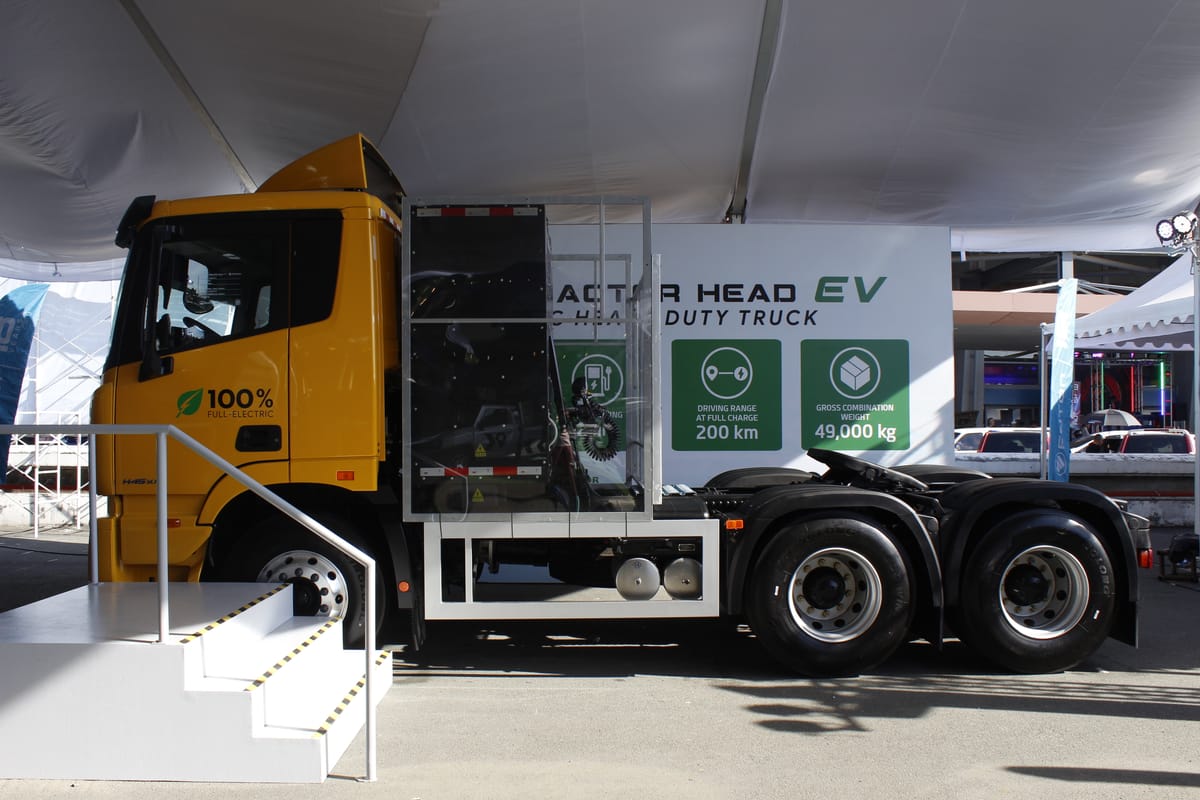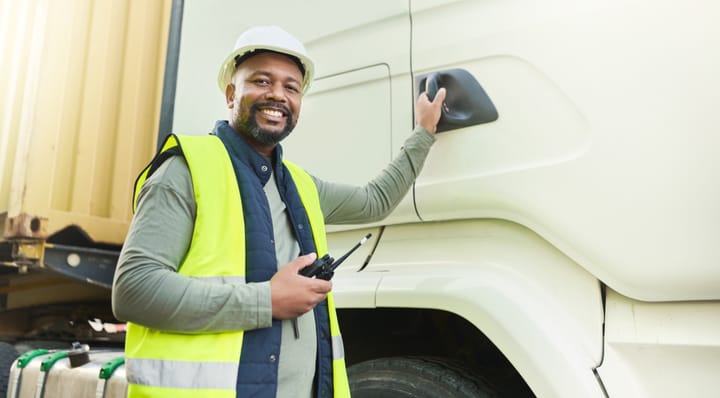China's ahead on EVs. Can the U.S. catch up?
Plus: Job orders plummet at Port of L.A. | Fuel economy standards change

New carriers are entering the market, despite all the talk of the industry being overcapacity. They're sprouting up in some expected states and cities, and some not-so-expected ones...
Meanwhile, the DOT is moving to reverse fuel economy standards, while one industry expert is pushing for the U.S. to innovate and drive down EV costs.
Plus, safety tips for handling the worst-case scenario: your driver in a crash.
Editor's note: We're looking forward to the live webinar on June 18 discussing the trucking talent pipeline. Advance registration is required, so snag your free seat today.

Putting down roots. Here's an interesting article and data viz that shows where new motor carrier authorities are popping up. Some of the locations and specific cities might surprise you.
Something to ponder: What does "success" look like in trucking? Profits? High-value shippers? Well, there's no one answer, as this short video reveals.
Top 10. We're saving this list of logistics influencers to follow for their insights and expertise on the industry.
An inside look at a sleeper on top of a box truck and how one trucker has decked out his cozy space.

733
The number of job orders available at the Port of LA for 1,575 longshore workers. Tariffs have dented cargo volumes arriving to the port, leading to "unusually low" job orders. Typically, 1,700 to 2,000 orders are posted during a day shift.
Source: LA Times

The case for incentivizing electric fleets
Much of the current administration's actions have focused on rolling back mandates related to emissions reduction or purchasing electric trucks (keep reading for more on that). Meanwhile halfway around the world in China, fleets are rapidly adopting battery-electric vehicles.
Jeff Seger, a clean energy consultant for the North American Council for Freight Efficiency, poses the questions: If China can do it, why can't we? Can the U.S. smartly follow behind?
His take: "With innovation, we can drive costs down and make the BEV case more attractive."
Why this matters: The two countries have some differences in terms of electricity costs and government subsidies. But ultimately, it comes down to willingness in the private sector and incentives from the public sector. There's a path to electrification, but the question remains, do all parties involved want to go down that path?
Get more details at Commercial Carrier Journal.

TRUCK POWERHOUSE: Daimler, Toyota truck units to merge years after announcement
WEIGHT LESS: 100+ truckers ticketed, OOS for skipping weigh stations
LTL LOSSES: Tonnage falls for LTL carriers with sluggish freight demand
JOBS VANISH: Trucking, transportation hiring stalls amid trade war

DOT paves way for reset of Biden fuel economy standards
Trump's Department of Transportation has all but reversed fuel economy rules put in place during the Biden administration. DOT's Secretary said the standards for cars and trucks are illegal, and he wants them undone. It will be up to the National Highway Traffic Safety Administration to make any adjustments.
Why this matters: If the rules are reset, OEMs may face less pressure to reduce emissions and EV transitions would slow. It's likely a welcome development to many truck manufacturers and truck lobbying groups that advocated for a slowdown on electric truck mandates. On the other hand, it's a blow to those hoping to further clean fleet transitions. (Transport Topics)
How fleet executives can navigate crash aftermath
The industry never wants to plan for an accident and its aftermath, but fleet executives still need to prepare for how to handle the chaos of a crash. A panel of safety experts recommended confirming the driver and everyone else's safety, contacting emergency services and collecting fleet data from dashcams, police reports and more.
Why this matters: Crashes are an unfortunate reality of the trucking business. The key is to have safety standards in place that prevent as many accidents as possible, along with training that teaches drivers and dispatchers how to act if a crash occurs. (FleetOwner)
Colorado Gov. vetoes autonomous truck ban bill
A bill in Colorado would have required a CDL-holding human to be inside self-driving commercial vehicles in order for the truck to operate legally. But the state's governor vetoed the bill, noting the legislation would "undermine innovation of future technologies that could increase road safety."
Why this matters: As tech companies and OEM trial and advance autonomous trucks, many questions surround the best way to govern these vehicles. Fleet executives with AVs may be looking to solve labor challenges, while others in the industry aren't sold on driverless trucks' safety. There are fine lines between safety, technology and efficient supply chains. (CDL Life)

Truckstop enhances load board features for carriers
Truckstop, which hosts a load board and provides freight management software, is amping up its features. Now, carriers can filter loads by popularity, seeing which ones have more or less competition. And they can do a backhaul search to find return loads.
Why this matters: Technology is making it more seamless for carriers to find and book loads. The backhaul feature, in particular, could greatly improve efficiency and reduce dreaded empty miles for a fleet. (Overdrive)

Thanks for reading today's edition! You can reach the newsletter team at editor@theinsidelane.co. We enjoy hearing from you.
Interested in advertising? Email us at newslettersales@mvfglobal.com
The Inside Lane is curated and written by Shefali Kapadia and edited by Bianca Prieto.





Comments ()